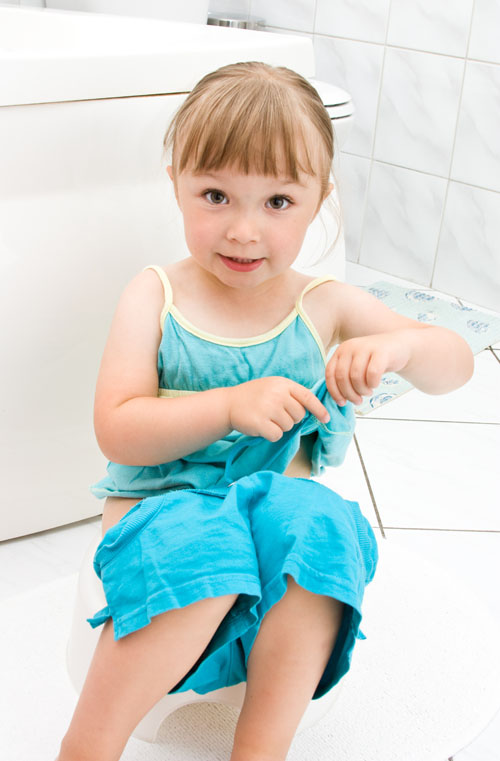By Your Friendly Potty Time Contributors
10) Don’t feel pressure from other parents or family members to train at a certain age: Rely more on cues from your child and your insight as their parent.
9) Learn where every restroom is in every store: You just never know when they’re going to have to go!
8) Always carry extra clothes in case of an accident: Do this for quite a while after training seems finished too. It’s not unusual to have an “oops” after a long time of staying dry.
7) Use lots of positive reinforcement and motivators: Find out what motivates your child: little candies, stickers, small toys, etc. Or, you may choose not to use tangible items, and just CELEBRATE! Likewise, taking your child to the store and letting them pick out some big-kid undies may be a great way to start building excitement.
6) Consider investing in a portable potty or potty seat cover: A portable potty or seat cover makes the size of the seat much more child-friendly. You can place a self-contained unit around the house near your child, or even take something with you on trips and errands (which is likely to be much more clean than a public restroom!)
5) Realize that night training may take significantly longer, or just come later, than day trainings: Some night training pants or an absorbent pad under the sheet may help with sleepy accidents.
4) Be prepared for, and okay with, occasional set-backs: Due to changes in routine, family structure, or just child temperament, there may come a time when a little break from potty training is needed. This is perfectly okay – you can always start up again when things settle.
3) Be Consistent: Once you have decided to take the plunge into a potty training routine or ritual, maintaining that routine as consistently as possible is very important!
2) Keep your sense of humor: Accidents in embarrassing places and small voices suddenly shouting out loud potty-related words just might happen. And if you can’t laugh right in the moment, try to laugh about it a little later.
1) Most importantly, realize every child and family is different: Accepting differences in timing, methods, and even duration of potty trainings will reduce your stress tremendously!




